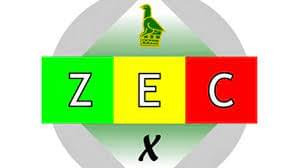MANY people were shocked when the Zimbabwe Electoral Commission (Zec) announced that Wilbert Mubaiwa had garnered more than 53 000 votes in the August 2023 presidential election race, beating seasoned campaigners on the ballot paper like Douglas Mwonzora and Lovemore Madhuku, among others.
All theories were thrown into the bin, with some suggesting that Zec, which has become infamous for the wrong reasons, had manipulated the figures and donated some to Mubaiwa.
NewsDay sought to understand the modus operandi of this “surprise package” in the 2023 election, in order to gain an in-depth understanding of how he managed to come third in the presidential race, behind President Emmerson Mnangagwa and main opposition leader Nelson Chamisa. Mubaiwa’s office, located in Harare’s Newlands area, resembles an ideology school, with paintings of more than 20 prominent liberation heroes such as Solomon Mujuru, Herbert Chitepo and Joshua Nkomo pasted on the wall.
“Being in the opposition doesn’t take away the fact that these are our heroes who fought for our country’s liberation. I cherish them. They played their part. They should have all resigned and received their packages in 1980, allowing the country to move forward,” Mubaiwa said, pointing to the paintings decorating his office wall.
Seated on a leather sofa which threatened to swallow him due to his small frame, Mubaiwa, wearing a slightly oversize black suit, said his office was the heartbeat of his presidential campaign.
“I was shocked by the figures I received. I had targeted 250 000 voters, building up for 2028. People may be surprised by the number of votes I received and may claim that Zec rigged the election in my favour, but I actually worked hard,” said the 61-year-old Mubaiwa whose resume tells a story of a well-schooled man with a portfolio full of high-ranking position in industry and commerce.
His corporate footprints cut across the private and public sectors. He was Zesa Holdings board of directors deputy chairperson from 1999-2005. He was also the chairperson of Hwange Colliery Company in 2005.
The celebrated engineer was also Sunway City chief executive and vice-president of the Harare Junior Chamber of Commerce.
He has led and consulted for The African Development Consortium Limited, Afro Infrastructure Solutions, Southern Africa Infrastructure Link, Afro Infrastructure Properties and Artisan Logistics, among other companies.
The unassuming president of the National People’s Congress (NPC) credits his performance to his fascination for and obsession with figures and charts.
“We hired a public relations company to conduct surveys. We realised that there is a significant number of die-hard supporters in both Zanu PF and CCC. We also discovered that the only way for an opposition party to win is by eating into Zanu PF’s support base,” said Mubaiwa, a live testimony that dynamites, indeed, come in a small packages.
Armed with the survey results, the pint-sized politician adopted what he called a “word, poster and flyer” campaign, whereby he only met groups of fewer than 30 people per province. He claimed to have printed over 60 000 posters.
“I realised that I had limited resources, so I only met with leaders in several provinces, hoping that they would spread the word to others in their communities. However, I discovered that most people were serving multiple political parties for financial gain,” he said, also revealing that his party’s ideology is anchored on ubuntu and African beliefs.
“We believe that our collective faith in God, our traditions, beliefs and practices handed down to us by our ancestors give purpose and meaning to our nation. They unite the people of Zimbabwe, and Africa as a whole, in a bond of fraternal love, unity and purposefulness.
“We stand united and motivated by our fights and struggles against the destabilising and subjugating influences of imperialism, slavery, colonialism, neo-colonialism, inequality and the manipulation of the electorate,” opined the soft-spoken veteran administrator.
Regarding the Political Actors Dialogue (Polad), Mubaiwa stated that if President Mnangagwa is serious about it, he should change the Constitution.
“I haven’t thought about joining Polad. I will cross that bridge when I get there. However, I believe that Polad is not serving any purpose because there are no legal statutes backing it,” the qualified engineer who entered politics in 2016 said.
“I had never been an official member of any political party in Zimbabwe until August 2016 when I joined the Zimbabwe People First (ZimPF) Party, then led by the former Vice-President of Zimbabwe, Joice Mujuru. I later became part of a new formation, the National People’s Party (NPP), led by Mujuru, in March 2017, following fallout between Mujuru and other founding leaders of ZimPF, such as Rugare Gumbo and Dydmus Mutasa,” he said.
“In the NPP, I was elected to the position of treasurer-general, a position I never got to occupy as I was not confirmed at the party’s convention in August 2017 due to disagreements over efforts to confirm a losing candidate as treasurer-general. I later resigned on the grounds of undemocratic practices and left the NPP in October 2017.”
Mubaiwa said concerned Zimbabweans approached him to initiate a consultation process to determine if there was a need for another political party.
“This consultation process, which lasted three years until March 9, 2022, produced a report recommending the formation of a new political party, which was named the National People’s Congress. I was elected as the interim president of the NPC by 240 delegates from the country’s 10 provinces on March 13, 2022. I was later elected as the substantive president of the NPC in elections held on January 27, 2023, where I faced no opposition,” he said.
Source Zimbabwe Situation










